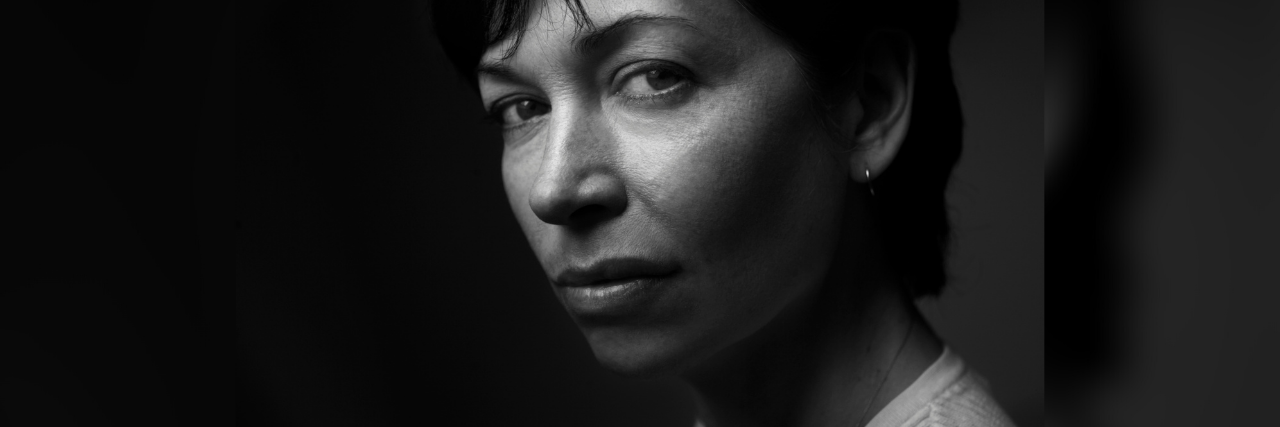Don’t Invalidate My Trauma Because It Was ‘Normal in the Old Country’
Editor's Note
If you’ve experienced domestic violence or emotional abuse, sexual abuse or assault, the following post could be potentially triggering.
You can contact The National Sexual Assault Telephone Hotline at 1-800-656-4673.
You can contact The National Domestic Violence Hotline online by selecting “chat now” or calling 1-800-799-7233.
You can also contact the Crisis Text Line by texting “START” to 741741.
Anyone who has ever disclosed experiences with physical, emotional or sexual abuse has been confronted with varying degrees of having their trauma met with dismissive or minimizing statements. I’ve experienced my fair share of them, particularly with regards to sexual abuse that ranged from hurtful to gaslighting. Each time I dare to tell my truth and it is met with this kind of response, I feel not only let down but retraumatized. But perhaps none of these responses are as hurtful and tone-deaf as being told something was “normal in the old country.”
Maybe because I have a master’s degree in cultural anthropology, maybe because I’m a first-generation American born to Jewish Hungarian immigrants who are the children of Holocaust survivors, or maybe because I’m human, something about that statement reeks of a kind of cultural egotism that feels utterly stifling to me. I’m the first person to try to understand people within the context of their upbringing. It was literally my only task as a graduate student writing my master’s thesis in a predominantly Muslim country as a liberal feminist anthropologist. My only focus was to objectively assess what was in front of me as nonjudgmentally as I could. But… in spite of my objectivity, I still had firm biases regarding human rights issues and an understanding that some things may have perpetuated in a culture for centuries but no longer serve an evolving world in which we are recognizing the myriad ways in which people can have their rights violated simply for who they are.
Women, children, ethnic minorities, religious minorities, LGBTQIA+ individuals and people of color have disproportionately been the targets of all kinds of violence which fall under the umbrella of this illusion of moral superiority called the “it was normal in the old country” argument. To call this out as hypocritical, damaging and immoral isn’t being culturally insensitive, it is recognizing that basic human rights are not up for negotiation.
In my own personal life, the most hurtful example of this has been my disclosure of the sexual abuse I experienced as a child. When it was discovered, there was a brief reaction of anger toward my abuser followed with “it’s normal in the old country” and compounded with “it happened to XYZ persons and they turned out just fine.” I spent much of my adolescence trying to comprehend how something that was “normal” could feel so “abnormal” and why nobody seemed particularly concerned about it even though it had infiltrated so many aspects of my life, from my developing an eating disorder, to having an ulcer, to completely shutting down my sexuality.
I isolated myself and kept myself in a carefully curated bubble of shame because I felt as though my feelings were invalid and a betrayal of my heritage. My inner dialogue often involved self-flagellating thoughts of being a failure to my Hungarian roots for not being strong enough to not allow my abuse to affect me in any way. I began the slow process of shoving my memories into a suitcase marked “Old Country Crap” and hiding it deep within the closet of my mind. I adopted a mask of the “Perfect Child of Hungarian Immigrants” who thrived in the new country while respecting the norms established by those before me.
I only began questioning these norms when I started therapy and my trauma memories resurfaced. The anger and resentment of having to have endured the legacy of abuse that was normalized by my ancestors was overwhelming. I was accused of having been brainwashed, abandoning my family and country of origin and overreacting to something that “wasn’t that bad” compared to the horrendous things my relatives endured in the “old country.”
This “old country” became a place I hated, a source of comparative suffering that I didn’t welcome and a point of contention between my family of origin and that has slowly eroded many of my relationships as my healing journey has evolved. I have learned to accept my trauma as valid, irrespective of where it occurred and where the perpetrators were born. I bucked the system that normalized these violations by viewing them through the lens of some misguided idea that a cultural identity can make these violations acceptable and even somehow right.
Time, education, awareness and familiarity with individuals of many different backgrounds is a great equalizer. It generates tolerance and it motivates the desire to advocate for the just treatment of those who have been routinely violated because of their “country” or “culture” of origin. The next time anyone tries to diminish your pain as something “normal” because of your heritage, please know that the one who is wrong and who bears the shame isn’t you, it’s them. Your trauma doesn’t have greater or lesser merit because of who your parents are. That wasn’t a decision you made. But you do have a choice and removing yourself from a narrative in which the act of violating your humanity is normalized is one of the bravest things you can do.
Getty Images photo via diane39

